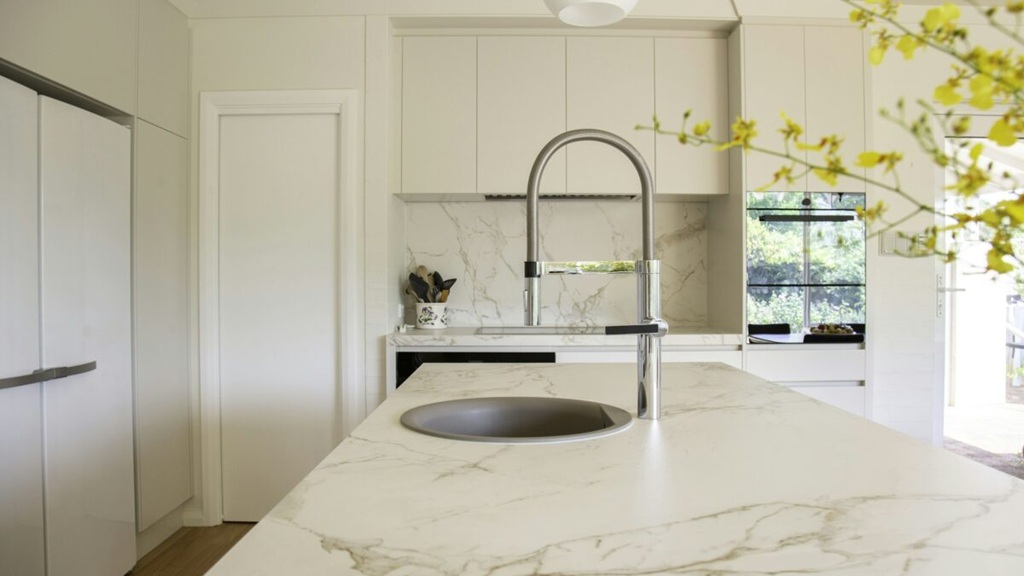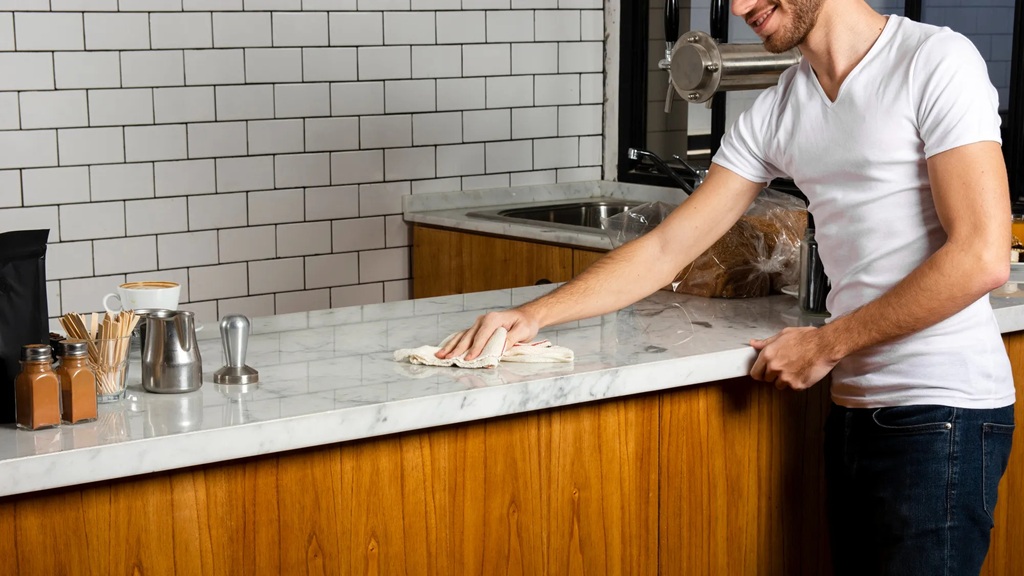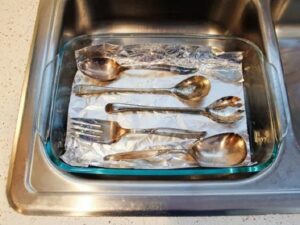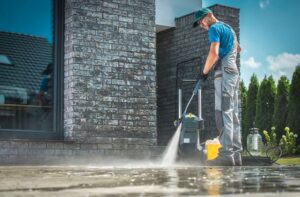
Quartz countertops have surged in popularity, gracing kitchens and bathrooms with their stunning aesthetics and robust durability. Unlike natural stone, quartz is engineered, combining natural quartz crystals with resins and polymers. This creates a non-porous surface that’s inherently resistant to many common household mishaps. However, while less susceptible to staining than granite or marble, quartz isn’t entirely impervious. Understanding the nuances of stain prevention is crucial for maintaining the pristine beauty of your quartz investment.
The Anatomy of Quartz and Stain Vulnerability:
Before diving into prevention tactics, let’s dissect the composition of quartz. The roughly 90-93% quartz crystals provide the stone’s strength and visual appeal, while the remaining 7-10% resins and polymers bind the crystals together. This engineered composition results in a surface that’s far less porous than natural stone, minimizing the absorption of liquids. However, the resins, while durable, can react with certain substances, leading to staining or discoloration. For instance, highly acidic or alkaline substances, as well as some dyes and solvents, can interact with the resin matrix, potentially causing permanent damage. Furthermore, prolonged exposure to heat can affect the resin, making it more susceptible to staining or even warping.
The Immediate Action Protocol: Spills and Splatters Demand Swift Response:
The golden rule of quartz countertop maintenance is immediate cleanup. Any spill, regardless of its perceived harmlessness, should be addressed promptly. Delaying cleanup allows substances to linger, increasing the likelihood of staining. This is particularly true for acidic liquids like lemon juice, vinegar, or tomato sauce, as well as strongly pigmented substances like red wine, coffee, or beet juice. Blot spills with a clean, soft cloth or paper towel, avoiding rubbing, which can spread the stain. For sticky residues, use a plastic spatula to gently scrape away the excess before cleaning.
The Daily Defense: Gentle Cleaning for Lasting Brilliance:
Regular cleaning is the cornerstone of stain prevention. For daily maintenance, a simple solution of warm water and mild dish soap is all you need. Use a soft cloth or sponge to wipe down the surface, ensuring you remove any residue. Avoid abrasive cleaners or scouring pads, as these can scratch the surface, dulling its shine and creating microscopic crevices where stains can accumulate. After cleaning, dry the countertop thoroughly with a clean, dry cloth. Leaving water droplets to evaporate can lead to mineral deposits, which can appear as faint stains or dull spots.
The Strategic Shield: Preventing Stubborn Stains from Taking Root:
Beyond daily cleaning, proactive measures can significantly reduce the risk of stubborn stains.
- Coasters and Placemats: Employ coasters under beverages, especially those containing acidic or pigmented liquids. Placemats provide a barrier against spills and food residue, protecting the countertop from direct contact with potentially staining substances.
- Cutting Boards: Always use cutting boards when preparing food. Direct cutting on quartz can not only dull knives but also leave scratches or stains from food pigments and acids.
- Trivets and Hot Pads: Quartz is susceptible to heat damage. Never place hot pots or pans directly on the countertop. Use trivets or hot pads to create a buffer between hot cookware and the surface.
- Avoid Harsh Chemicals: Steer clear of harsh chemicals like bleach, oven cleaners, drain cleaners, and paint strippers. These substances can damage the resin in quartz, leading to discoloration or etching. Opt for pH-neutral cleaners specifically designed for quartz or natural stone.
- Sealing: Not Typically Required, But Consider Manufacturer Recommendations: Because of the resin within the quartz product, generally sealants are not needed. Certain manufacturers may recommend a sealing product based on the specific type of quartz. It’s best to follow the manufacturer’s suggestions.
The Stain Removal Arsenal: Addressing Existing Blemishes:

Even with diligent prevention, stains may occasionally occur. When faced with a stain, act quickly and employ the appropriate removal technique.
- For Dried Spills: A paste of baking soda and water can be effective. Apply the paste to the stain, allow it to sit for a few minutes, and then gently scrub with a soft cloth. Rinse thoroughly with water.
- For Oily Stains: A degreasing dish soap or a mild all-purpose cleaner can help break down oily residues.
- For Stubborn Stains: A specialized quartz cleaner or a mild solvent like acetone can be used for more persistent stains. However, proceed with caution and test in an inconspicuous area first, as some solvents can damage the surface.
- For Permanent Stains: If a stain proves impossible to remove with home remedies, consult a professional stone restoration specialist. They have the expertise and tools to safely and effectively remove even the most stubborn stains.
Related: The Ultimate Floor Mat Cleaner Checklist: A Luton Local’s Guide to Pristine Mats
The Long-Term Care: Preserving Your Quartz Investment:
Consistent maintenance and mindful practices are key to preserving the beauty and longevity of your quartz countertops. Regularly inspect your countertops for any signs of damage or discoloration. Address any issues promptly to prevent them from escalating. By following these guidelines, you can ensure your quartz countertops remain a stunning and functional centerpiece in your home for years to come.
Stains on Quartz Countertops (FAQs):
- Do quartz countertops need to be sealed?
- Generally, no. Quartz’s engineered composition makes it inherently non-porous. However, always defer to your manufacturer’s specific recommendations.
- Can I use bleach on quartz countertops?
- No. Bleach is a harsh chemical that can damage the resins in quartz, leading to discoloration and weakening.
- Can I put hot pans on quartz countertops?
- No. Direct contact with hot pans can damage the resins, causing discoloration, warping, or cracking. Always use trivets or hot pads.
- What is the best cleaner for quartz countertops?
- Can red wine stain quartz countertops?
- Yes, if left to sit for a prolonged period. Clean up spills immediately to minimize the risk of staining.
- Can I scratch Quartz Countertops?
- While quartz countertops are highly durable, they are not completely scratch-resistant. It’s best practice to use cutting boards.
- Can I use vinegar on quartz countertops?
- It is recommended that you do not use vinegar on quartz countertops. Vinegar is highly acidic, and with prolonged use, can dull the finish of the countertop.
- What should I avoid placing on quartz Countertops?
- Avoid placing highly acidic liquids, harsh cleaners, and very hot pots or pans.
By understanding quartz’s properties and adopting these proactive maintenance practices, you can confidently preserve the beauty and functionality of your countertops, allowing them to remain a stunning centerpiece in your home for years to come.





